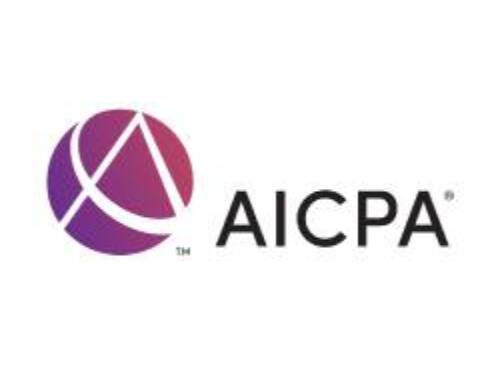Provided by Copper Dome Strategies, LLC
The 1st regular session of the 125th South Carolina General Assembly concluded last week. Many of the priorities going into the session were realized, including new restrictions on abortions, school choice via education scholarships, restructuring the Department of Health and Environmental Control (DHEC), prioritizing workforce and economic development, eliminating the Certificate of Need (CON) requirements relating to the licensure of healthcare facilities, prioritizing public safety and of course, the state budget. Historic economic growth once again provided considerable additional General Fund revenue and a surplus of $3 billion. In advance of the session, members pre-filed over 900 bills.
The year began with the inauguration of Governor Henry McMaster and the state’s constitutional officers. As this was the first year of a two-year legislative session, all bills will retain their place in committee or on the calendar. Here is a look back at this past legislative session.
Tax
H. 4017 (Rep. Ballentine), relating to the application of the Federal Income Revenue Code to state tax laws, also known as Tax Conformity, was signed into law on May 16, 2023.
S. 31 (Senators Hutto and K. Johnson) regarding independent audits of municipal financial records became law on June 7, 2023, after the General Assembly overrode the governor’s veto of the bill. The new law allows municipalities with less than $500,000 in total revenues to provide a compilation of financial statements.
S. 557 (Senators M. Johnson, Peeler, Kimbrell, and others), which increases the amount of the Apprenticeship Income Tax Credit and the number of years it can be claimed remains on the Senate calendar awaiting action next year.
Economic Development
H. 3604 (Reps. Bannister, G. M. Smith and Murphy) providing $1.291 billion in economic development incentives for Scout Motors was signed into law on March 23, 2023. Volkswagen, the world’s largest automaker and the seventh largest company in the world, chose Richland County to establish its manufacturing operations in Blythewood. Scout, makers of the next generation of all-electric trucks and rugged SUVs, plans to invest $2 billion in the facility that has the potential to create 4,000 or more permanent jobs. Phase two of the project could be an additional $2 billion investment and an additional 4,000 jobs.
H. 3726 (Reps. G. M. Smith, West, Ballentine, Davis and others) enacting the “Statewide Education and Workforce Development Act,” was signed into law on May 19, 2023. The bill creates a new division within the Department of Employment and Workforce (DEW) known as the Office of Statewide Workforce Development which will provide a coordinated and unified plan for workforce development efforts throughout the state to maximize available resources and foster a customer-centric workforce development system
State Comptroller General Richard Eckstrom resigned in April following the reporting of a $3.5 billion accounting error that led to numerous legislative oversight hearings. In May, Governor Henry McMaster appointed Brian Gaines to serve the remainder of Eckstrom’s term as the State Comptroller General. Gaines was previously the Executive Budget Director for the Department of Administration.
Agribusiness
The Department of Agriculture received $40 million in the state budget for the Agribusiness Fund Matching Grant Program. The grants will be used to address a significant lack of processing capacity in food processing and packaging. The program will be closely modeled after the success of similar programs in North Carolina, Georgia and Virginia.
H. 3951 (Reps. Haddon, G. M. Smith, Bannister and others) that enacts the “Working Agricultural Lands Preservation Act,” passed the House on March 30, 2023. The bill establishes the South Carolina Working Farmland Protection Program that will identify and provide permanent protection to strategically significant working farmland properties whose continued availability to commercial agricultural businesses is essential to the long-term future of the economic sector. The bill also creates a fund for qualifying projects under this program. The bill is in the Senate Finance Committee awaiting consideration next year.
The Water Pollution Control Permit Regulations became effective on May 26, 2023, after they were officially published in the state register. The document can be found here by searching document #5137.
Animal Welfare
The state’s first College of Veterinary Medicine will become a reality at Clemson University as the state budget included $12.5 million in recurring funding for administration and $75 million in one-time funding to begin construction.
S. 449 (Senator Climer), relating to the transportation of live swine without identification, was signed into law and became effective May 16, 2023. The bill extends the sunset clause by two years.
H. 3682 (Reps. Murphy, Wetmore, Bailey, Rose and others) related to the care of animals after the owner’s arrest passed the House in March and came out of the Senate Agriculture and Natural Resources Committee in May. The bill removes provisions regarding a lien on the seized animal, outlines hearing procedures for ordering the seized animals’ cost of care, and makes conforming changes to penalties for animal cruelty. The bill remains on the Senate calendar awaiting debate.
H. 3514 (Reps. Ott, B. Newton, Murphy, Cobb-Hunter, Caskey and others), the “South Carolina Equine Advancement Act,” passed the House in April and was polled out of the Senate Family and Veterans’ Services Committee. It establishes an equine commission and guidelines for para-mutual wagering on horse racing and allows advanced deposit wagering, with ten percent of the fees collected paid to the state. The bill remains on the Senate calendar awaiting debate next year.
Automotive
H. 3824 (Reps. B. Newton, W. Newton, Haddon, Ballentine and others) relating to alternative fuel property tax income credits, passed the House on May 11, 2023. The bill provides for certain leases and adds “electrical equipment” to the definition of “eligible property.” The bill is now in the Senate Finance Committee for consideration next year
Budget
Historic economic growth once again provided considerable additional General Fund revenue and a budget surplus of $3 billion. As is often the case, the budget was not adopted prior to the end of session, requiring Governor Henry McMaster to issue an Executive Order calling the legislature back for a “Special Session” for unfinished business. An impasse in negotiations on the state budget that lasted several weeks was resolved in early June when a budget Conference Committee unanimously adopted a Conference Report. Last week, the General Assembly adopted the report on the FY23-24 General Appropriations Act H. 4300 and the Capital Reserve Fund H. 4301.
Conferees noted the plan appropriately funds the core functions of government with specific emphasis on education, law enforcement, workforce development, and employee pay increases.
The budget documents can be found here.
On Wednesday, Governor Henry McMaster issued eleven line-item vetoes to the budget totaling $1.5 million. McMaster noted the small number was due to the collaborative and cooperative relationship with legislative leadership and noted he was not sure of any other time in recent history when a governor and his staff have been so immersed in the budget process. McMaster said, “State government is in the best fiscal shape ever. We have the largest budget surplus, the largest rainy day reserve fund and the lowest debt – ever – in the history of our state. We’ve cut taxes on our small businesses, and we have returned money back to the taxpayers.”
The governor’s Veto Message can be viewed here.
The General Assembly does not plan to return to address the vetoes this year. The new budget year begins July 1.
Education
S. 39 (Senator Grooms), which establishes the South Carolina Education Scholarship Trust Fund, was signed into law on May 5, 2023. The new law, which proponents believe to be a major step in the push for school choice, establishes education savings accounts (ESAs) for low-income families and allows up to $6,000 a year to be used toward private school tuition or for students to attend schools in other districts, which charge for out-of-district attendance.
H. 3728 (Reps. Felder, A. M. Morgan, Leber, Magnuson and others), which enacts the “South Carolina Transparency and Integrity in Education Act,” remains awaiting action by a Conference Committee. The bill prohibits certain concepts like Critical Race Theory from being included in public school instruction and provides for public review of the public school curriculum.
H. 4060 (Reps. G. M. Smith, West, Ballentine, M. M. Smith, B. Newton and others) aimed at attaining education improvement goals was adopted by the House in March but has yet to be debated in the Senate. The bill enhances pathways to the workforce pipeline, moving academic remedial courses from technical colleges to high schools, updating the state’s dual enrollment system and creating a uniform system and providing a uniform format and requirements for transferring credit courses. The bill remains in the Senate Education Committee.
General Business
H. 3605 (Reps. G. M. Smith and Sandifer), relating to licensees under the Department of Labor, Licensing and Regulation (LLR), was signed into law on May 10, 2023. Among other things, the law allows the licensee to request certification of an investigation, establishes informal conferences and prohibits the denial of a license based solely or in part on a prior criminal conviction under certain circumstances.
Healthcare
S. 474 (Senators Grooms and Massey) the “Fetal Heartbeat” bill was signed into law on May 25, 2023. The bill would prohibit abortions after a fetal heartbeat has been detected at around six weeks. The bill also provides exceptions for rape, incest, fatal fetal anomaly, and the patient’s health and life. A lawsuit challenging the bill’s constitutionality has been filed.
S. 399 (Senators Peeler and Alexander), which would restructure the current Department of Health and Environmental Control (DHEC), was signed into law on May 19, 2023. Effective July 1, 2024, the new law is the most comprehensive government reform legislation in decades, splitting DHEC and creating the Department of Public Health and the Department of Environmental Services. The law further requires the Department of Administration to assist in determining additional reform for behavioral health entities.
S. 164 (Senator Climer) repeals some Certificate of Need (CON) requirements relating to the licensure of healthcare facilities and was signed into law on May 16, 2023. Nursing homes, home health agencies and MUSC remain under the program.
H. 3204 (Rep. Erickson), the Psychology Interjurisdictional Compact (PSYPACT), was signed into law on May 16, 2023. This interstate compact is designed to facilitate the practice of telepsychology and the temporary in-person, face-to-face practice of psychology across state boundaries. The United States District Court of Georgia would resolve disputes.
S. 397 (Senator Shealy), relating to the regulation of athletic trainers, was signed into law on June 19, 2023. The law transfers regulatory authority from the Department of Health and Environmental Control to the State Board of Medical Examiners.
S. 407 (Senators Shealy and Senn), relating to prescriptions for opioid antidotes, was signed into law on June 19, 2023. The law requires antidotes to be offered consistent with the existing standard of care and the Food and Drug Administration. The law does not apply to patients receiving care for cancer, patients in hospice and patients receiving palliative care.
H. 4159 (Reps. Herbkersman, Davis, M. M. Smith, Erickson and others) that enacts the “South Carolina Telehealth and Telemedicine Modernization Act,” passed the House in May. The bill modernizes necessary terms and revises requirements for the practice of Telemedicine. It will be before the Senate Medical Affairs Committee for consideration next year.
Higher Education
S. 314(Senator Talley) relating to certain capital improvement projects passed the Senate on May 10, 2023. The bill raises threshold amounts and exempts certain projects from state oversight. The bill is now in the House Ways and Means Committee for consideration next year.
S. 138(Senator McElveen), which provides that a student who becomes eligible for a LIFE scholarship may not subsequently become ineligible for retention of the scholarship based on a grade in a dual enrollment class, passed the Senate in March. The bill is now in the House Education and Public Works Committee for consideration next year.
S. 125 (Senators Hembree, Turner and Young) that extends the stipends of LIFE and Palmetto Fellows scholarships for education majors passed the Senate in March. The bill is now in the House Education and Public Works Committee for consideration next year.
Judicial
A Senate Judiciary Subcommittee debated a number of bills this year dealing with legal reform and workers’ compensation. They include:
- S. 87 (Senator Malloy), the Tort Claims Act that would increase the limits on liability.
- S. 263 (Senator Rankin) relating to Jury Voir Dire, authorizes the attorney to conduct Voir Dire and provides that the number of jurors to be drawn is within the discretion of the trial judge and deletes the requirement that the panel must be made up of twenty jurors.
- S. 533 (Senators Alexander, Peeler, Cromer and others) contraction of Joint and Severable Liability.
- S. 543 (Senator Alexander), an extension of coverage of the State Insurance Reserve Fund.
- S. 250 (Senator M. Johnson) provides that commissioners are entitled to judicial retirement.
- S. 79 (Senator Malloy) deletes the prohibition of serving consecutive terms by the chairman and provides that the governor may reappoint a chairman.
All of the above-mentioned bills will be awaiting further action next year by the committee.
State Symbols
S. 581 (Senator Hembree), designating the Venus Flytrap as the Official State Carnivorous Plant was signed into law on May 8, 2023.
H.4291 (Rep. Felder), designating the eighth day of August each year as “Clog Dancing Day” in South Carolina, was signed into law on May 26, 2023.
H. 3142 (Reps. Rivers, Leber, Wheeler, Dillard and others) designating the thirteenth day of May each year as “Robert Smalls Day” in South Carolina was signed into law on May 25, 2023.
To view a list of all other state symbols and emblems, click here.
Telecommunications
H. 3782 (Reps. West, Yow, Jefferson, Ligon and others) that adds “streaming content” to the definition of “Video Service” passed the House in March and remains on the Senate calendar for consideration next year.
Utilities
S. 330 (Senators Rankin and Alexander), which adds tiered penalties for malicious injury to telegraph, telephone or electric utility systems, was signed into law on June 19, 2023. It also creates offenses for malicious injury of gasoline, natural gas, propane or electric utility by use of a firearm.




